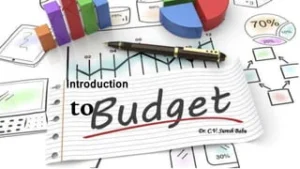Which of the Following Should Not Be Considered When Setting a Current Budget?
When it comes to financial management, setting a budget is one of the most crucial steps. A well-planned budget helps individuals and organizations manage their finances, ensuring that all necessary expenses are covered and savings goals are met. However, it is equally important to understand what should not be considered when setting a current budget. This guide will delve into the factors that should be excluded from your budgeting process and provide practical advice for creating a balanced and realistic financial plan.
Introduction to Budgeting
Budgeting is a fundamental aspect of financial management. It involves creating a plan for how to allocate your income to cover expenses, savings, and investments. A budget helps you keep track of your spending, avoid debt, and achieve your financial goals. However, to create an effective budget, it’s essential to know not only what to include but also what to exclude. Understanding the pitfalls of budgeting can help you avoid common mistakes and ensure that your financial plan is realistic and sustainable.

The Importance of Budgeting
Budgeting is not just about restricting spending but about making sure your money works for you. It provides a clear picture of where your money goes and helps you make informed decisions. A good budget helps you:
- Manage your spending
- Save for future goals
- Avoid debt
- Be prepared for emergencies
Without a budget, it’s easy to lose track of expenses and find yourself in financial trouble. Therefore, understanding how to set a proper budget is crucial for financial health.
Speculative Income
Why it Shouldn’t be Considered
Speculative income includes potential earnings that are uncertain or not guaranteed, such as lottery winnings, bonuses that are not assured, or potential gifts. Relying on speculative income can lead to unrealistic expectations and financial instability. Counting on money that might never materialize can cause you to overspend and fail to meet your financial obligations.

Speculative income is inherently unpredictable and basing your budget on such uncertain sources can be risky. For instance, if you plan your budget assuming you will receive a large bonus at the end of the year and it doesn’t come through, you may find yourself short on funds to cover essential expenses.
Alternative Approach
Base your budget on guaranteed income sources such as your salary, rental income, or other regular and reliable earnings. By focusing on stable income, you can create a more accurate and dependable budget. If speculative income does come through, treat it as a bonus and use it to boost your savings or pay off debt, rather than relying on it to cover regular expenses.
A practical step is to categorize speculative income as ‘additional’ and allocate it towards non-essential goals like vacations or luxury purchases, thereby preventing it from affecting your essential financial plans.
Emotional Spending
Why it Shouldn’t be Considered
Emotional spending refers to making purchases based on mood rather than necessity. This can lead to impulsive buying and overspending. When you let emotions drive your financial decisions, you might find yourself buying items you don’t need or can’t afford, leading to financial stress and instability.

Emotional spending often occurs when you’re stressed, bored, or feeling down, and it can lead to purchasing items on a whim. This type of spending can quickly derail a carefully planned budget, resulting in unnecessary expenses that add up over time.
Alternative Approach
Stick to a well-planned budget that prioritizes essential expenses and savings goals. Consider setting aside a small discretionary fund for occasional treats, but do not let emotions drive your financial decisions. By having a clear plan and sticking to it, you can avoid the pitfalls of emotional spending and stay on track with your financial goals.
Implementing a cooling-off period for non-essential purchases can also help. For example, wait 24 hours before making a purchase to determine if it’s a necessity or an impulse buy.
Unpredictable Expenses
Why it Shouldn’t be Considered
Unpredictable expenses, such as unexpected repairs or medical emergencies, can disrupt your budget if not planned for properly. While it’s impossible to predict every unexpected cost, failing to prepare for them can throw your finances into disarray.

These expenses are unpredictable by nature but inevitable over time. Car repairs, home maintenance, or sudden medical bills can be significant, and if they aren’t accounted for, they can cause financial chaos.
Alternative Approach
Create an emergency fund specifically for unforeseen expenses. This way, your regular budget remains unaffected, and you have a safety net for unexpected costs. Aim to save at least three to six months’ worth of living expenses in your emergency fund to ensure you’re prepared for any financial surprises.
Setting aside a small amount each month towards an emergency fund can build a cushion that allows you to handle surprises without disrupting your budget. This fund acts as a financial safety net, giving you peace of mind.
Debt Accumulation
Why it Shouldn’t be Considered
While it is important to account for existing debt repayments in your budget, planning to accumulate more debt to cover expenses is not a sustainable strategy. Relying on credit to meet your financial needs can lead to a cycle of debt and financial strain.

Accumulating more debt to cover budget shortfalls can lead to a debt spiral, where more of your income goes towards interest payments rather than covering your needs or building wealth.
Alternative Approach
Focus on reducing existing debt and avoiding new debt. Include debt repayment plans in your budget and aim to live within your means. By prioritizing debt reduction and avoiding new debt, you can improve your financial stability and work towards a debt-free future.
Developing a strategy such as the snowball or avalanche method for paying down debt can be effective. The snowball method focuses on paying off the smallest debts first, while the avalanche method targets the highest interest debts first. Both strategies can help reduce debt effectively.
Unverified Information
Why it Shouldn’t be Considered
Relying on unverified or inaccurate financial information can lead to poor budgeting decisions. This includes unconfirmed future expenses or unresearched investment opportunities. Making decisions based on unreliable information can result in financial losses and instability.

Unverified information can come from unreliable sources or assumptions about future financial conditions that may not materialize. This can cause you to plan your budget based on faulty premises.
Alternative Approach
Base your budget on accurate and reliable information. Verify all financial data and consult trustworthy sources before making budgeting decisions. By ensuring that your financial information is accurate, you can make informed decisions that support your financial goals.
Regularly reviewing and updating your financial information is crucial. Use trusted financial tools and resources to gather data, and seek professional advice if needed to ensure your budget is based on solid information.
Unrealistic Savings Goals
Why it Shouldn’t be Considered
Setting unrealistic savings goals can lead to frustration and disappointment. While it’s important to save, setting goals that are too ambitious can make it difficult to stick to your budget and achieve your financial objectives.

Unrealistic savings targets can put unnecessary pressure on your finances, making it hard to cover essential expenses and leading to potential budget shortfalls.
Alternative Approach
Set realistic and achievable savings goals. Break down your savings targets into smaller, manageable milestones and track your progress regularly. By setting attainable goals, you can build your savings steadily and stay motivated to continue saving.
Consider using the SMART criteria for setting goals: Specific, Measurable, Achievable, Relevant, and Time-bound. This framework helps in creating practical and realistic savings objectives.
Ignoring Inflation
Why it Shouldn’t be Considered
Ignoring inflation can lead to underestimating your future expenses. Inflation affects the cost of goods and services, and failing to account for it in your budget can result in financial shortfalls.

Inflation erodes purchasing power over time, meaning that money saved today might not cover the same expenses in the future. Ignoring this can leave your budget underfunded.
Alternative Approach
Adjust your budget to account for inflation. Review your expenses periodically and adjust your budget to reflect changes in the cost of living. By considering inflation, you can ensure that your budget remains accurate and sustainable over time.
Including a small buffer in your budget for inflation can help you stay ahead of rising costs. Regularly reviewing economic trends and adjusting your budget accordingly can keep your financial plan relevant.
Overlooking Small Expenses
Why it Shouldn’t be Considered
Small expenses can add up over time and have a significant impact on your budget. Overlooking these minor costs can lead to overspending and financial strain.

It’s easy to dismiss small, everyday purchases, but they can accumulate and affect your financial health. Regularly underestimating these can result in budget discrepancies.
Alternative Approach
Track all expenses, no matter how small. Include every expenditure in your budget to get a clear picture of your spending habits. By accounting for all expenses, you can identify areas where you can cut costs and save money.
Using budgeting apps or tools to track every penny can provide insights into spending patterns. Small changes, like cutting out daily coffee purchases, can lead to substantial savings over time.
Lifestyle Inflation
Why it Shouldn’t be Considered
Lifestyle inflation occurs when your spending increases as your income grows. While it’s natural to want to improve your standard of living, allowing your expenses to rise in tandem with your income can prevent you from saving and achieving your financial goals.

Increasing income often leads to increased spending, which can erode potential savings and investment opportunities. This can keep you in a constant cycle of financial stagnation.
Alternative Approach
Maintain a modest lifestyle even as your income increases. Allocate additional income towards savings, investments, or debt repayment rather than increasing your spending. By avoiding lifestyle inflation, you can build wealth and secure your financial future.
Adopting a frugal mindset and resisting the urge to upgrade your lifestyle with every pay raise can help you save more. Focusing on financial goals rather than consumer desires ensures long-term financial health.
Steps to Create an Effective Budget
Creating a budget that is both realistic and effective requires careful planning and discipline. Here are detailed steps to help you craft a budget that works for you:
1. List Your Income Sources
Start by identifying all your reliable income sources. This includes your salary, business income, rental income, and any other regular earnings. Knowing exactly how much money you have coming in each month is the foundation of your budget.
- Calculate Total Monthly Income: Sum up all sources of income to get a clear picture of your total earnings.
- Identify Irregular Income: If you have irregular income (like freelance work), estimate the average monthly earnings to include in your budget.
2. Categorize Your Expenses
Divide your expenses into categories such as housing, utilities, food, transportation, insurance, savings, and discretionary spending. This helps in understanding where your money goes and in making adjustments as needed.
- Fixed Expenses: These are regular monthly expenses that do not change, such as rent or mortgage, utilities, and insurance premiums.
- Variable Expenses: These can fluctuate month to month, such as groceries, entertainment, and dining out.
- Discretionary Spending: Non-essential expenses like hobbies, vacations, and luxury items.
3. Set Priorities
Prioritize essential expenses such as rent or mortgage, utilities, groceries, and insurance. Ensure these are covered before allocating money to discretionary spending or non-essential items.
- Essential vs. Non-Essential: Determine what expenses are absolutely necessary and which ones can be adjusted or cut.
- Savings Goals: Prioritize savings as part of your essential expenses. Treat saving like a bill that must be paid each month.
4. Track and Adjust
Regularly track your spending to ensure you are staying within your budget. Make adjustments as needed to accommodate any changes in income or expenses.
- Monthly Review: At the end of each month, compare your actual spending to your budgeted amounts.
- Adjust Categories: If you consistently overspend in certain categories, adjust your budget to reflect realistic spending patterns.
5. Build Savings
Allocate a portion of your income to savings. This includes an emergency fund, retirement savings, and savings for specific goals such as vacations or major purchases.
- Emergency Fund: Aim to save three to six months’ worth of living expenses.
- Retirement Savings: Contribute regularly to retirement accounts like 401(k) or IRAs.
- Goal-Based Savings: Set aside money for specific goals, like buying a house or planning a vacation.
Practical Tips for Effective Budgeting
To ensure your budgeting process is smooth and effective, consider these additional practical tips:
1. Use Budgeting Tools
Utilize budgeting tools and apps to help you manage your finances more efficiently. There are many apps available that can track your income and expenses, categorize spending, and provide insights into your financial habits.
- Popular Budgeting Apps: Mint, YNAB (You Need A Budget), PocketGuard, and Personal Capital are popular options.
- Automate Savings: Use apps that allow you to automate transfers to your savings accounts, ensuring consistent savings without extra effort.
2. Involve Your Family
If you’re budgeting for a household, involve your family members in the budgeting process. This ensures everyone is on the same page and can help contribute to meeting financial goals.
- Family Meetings: Hold regular family meetings to discuss the budget, expenses, and financial goals.
- Assign Roles: Assign specific roles for managing different aspects of the budget, such as tracking expenses or managing savings.
3. Stay Flexible
While it’s important to stick to your budget, it’s also crucial to remain flexible. Life can be unpredictable, and you may need to adjust your budget to accommodate unexpected changes in income or expenses.
- Review Regularly: Review and adjust your budget regularly to reflect changes in your financial situation.
- Be Prepared to Pivot: If unexpected expenses arise, adjust other categories in your budget to accommodate these changes.
4. Celebrate Milestones
Celebrate financial milestones to stay motivated. Achieving your savings goals or paying off debt are significant accomplishments that deserve recognition.
- Set Milestones: Break down larger financial goals into smaller milestones.
- Reward Yourself: Treat yourself to something special (within reason) when you reach a milestone to stay motivated.
Common Budgeting Mistakes to Avoid
Even with the best intentions, it’s easy to make mistakes when budgeting. Here are some common pitfalls to avoid:
1. Overestimating Income
One common mistake is overestimating your income. This can lead to overspending and financial shortfalls.
- Be Realistic: Use conservative estimates for your income, especially if you have variable earnings.
- Account for Taxes: Ensure that you are budgeting based on your net income (after taxes), not your gross income.
2. Underestimating Expenses
Underestimating your expenses can also cause budget issues. Make sure you account for all regular and occasional expenses.
- Detailed Tracking: Track all your expenses, no matter how small, to get an accurate picture of your spending.
- Plan for Annual Costs: Include infrequent expenses like insurance premiums, car maintenance, and holiday spending in your budget.
3. Not Having an Emergency Fund
Without an emergency fund, unexpected expenses can derail your budget and lead to debt.
- Prioritize Savings: Build and maintain an emergency fund to cover unexpected costs.
- Start Small: If saving a large amount seems daunting, start with small, regular contributions.
4. Ignoring Debt Repayment
Ignoring debt can lead to increasing interest costs and financial stress.
- Include Debt Payments: Make debt repayment a priority in your budget.
- Create a Plan: Develop a strategy to pay down your debt, such as the debt snowball or avalanche method.
5. Not Reviewing Your Budget
Failing to review your budget regularly can result in outdated financial plans that don’t reflect your current situation.
- Monthly Reviews: Regularly review and adjust your budget to reflect any changes in your income or expenses.
- Stay Flexible: Be prepared to make changes to your budget as needed.
Advanced Budgeting Techniques
Once you have the basics of budgeting down, you can explore more advanced techniques to optimize your financial management.
1. Zero-Based Budgeting
Zero-based budgeting involves assigning every dollar of your income a specific purpose, so your income minus expenses equals zero.
- Detailed Allocation: Every dollar is allocated to a specific category, whether it’s expenses, savings, or debt repayment.
- Increased Control: This method provides a high level of control over your finances.
2. Envelope System
The envelope system involves dividing your budget into categories and allocating cash for each category into envelopes.
- Physical Cash: Withdraw cash for each budget category and place it into labeled envelopes.
- Spending Limit: Once the cash in an envelope is gone, you can’t spend any more in that category for the month.
3. Pay Yourself First
This technique involves prioritizing savings before any other expenses.
- Automatic Savings: Set up automatic transfers to your savings accounts as soon as you receive your income.
- Savings Priority: Treat savings as the first expense in your budget, ensuring you always save a portion of your income.
Benefits of Effective Budgeting
Effective budgeting offers numerous benefits that can significantly improve your financial health and overall well-being.
1. Financial Security
A well-planned budget helps you achieve financial security by ensuring that all essential expenses are covered and savings goals are met.
- Preparedness: Being prepared for unexpected expenses and emergencies.
- Reduced Stress: Lower financial stress and anxiety through better money management.
2. Achieving Financial Goals
Budgeting helps you achieve your financial goals, whether it’s saving for a house, retirement, or a vacation.
- Goal Tracking: Regularly track your progress towards your financial goals.
- Increased Savings: Allocate funds specifically for your savings targets.
3. Better Money Management
Budgeting improves your money management skills, helping you make informed financial decisions.
- Spending Awareness: Increased awareness of your spending habits.
- Control Over Finances: Greater control over your financial future.
Case Studies: Successful Budgeting
Learning from real-life examples can provide valuable insights into effective budgeting practices.
Case Study 1: The Johnson Family
The Johnson family managed to pay off $50,000 in debt and build an emergency fund by following a strict budget and using the envelope system. By prioritizing their expenses and tracking every dollar, they achieved financial stability within three years.
- Debt Repayment: Focused on paying off high-interest debt first.
- Emergency Fund: Built a substantial emergency fund to cover unexpected expenses.
Case Study 2: Sarah’s Solo Budgeting Journey
Sarah, a freelance graphic designer, managed to save for a down payment on a house by following a zero-based budget. Despite having an irregular income, she allocated every dollar to specific categories and adjusted her budget monthly.
- Irregular Income Management: Carefully tracked and allocated variable income.
- Savings Goals: Prioritized saving for her down payment over discretionary spending.
Conclusion
Setting a budget is a critical step in achieving financial stability and reaching your financial goals. By understanding what factors to exclude from your budgeting process, you can create a realistic and effective budget that supports your financial well-being. Focus on reliable income sources, avoid emotional and impulsive spending, prepare for unpredictable expenses, steer clear of accumulating new debt, and base your decisions on verified information. With these guidelines, you can build a strong financial foundation and navigate your financial journey with confidence.
For more insights and tips on effective budgeting, check out these helpful resources:
By following these principles and avoiding common budgeting mistakes, you can create a financial plan that helps you achieve your goals and secure your financial future. Remember, the key to successful budgeting is to be realistic, consistent, and disciplined in your financial management.

I don’t think the title of your article matches the content lol. Just kidding, mainly because I had some doubts after reading the article.